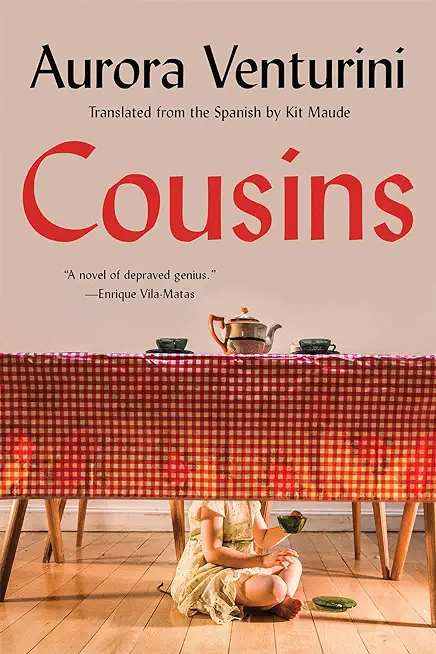
description
na, are forced to suffer through a series of ordeals thanks to their impoverished, dysfunctional family--in this darkly comic literary masterpiece from Aurora Venturini, never before translated into English At the age of eighty-five, Aurora Venturini stunned Argentine readers when her darkly funny and formally daring novel, Cousins (Las primas), won Página/12's New Novel Award. She had already written more than forty books, but it was only then, in 2007, that she was widely recognized as a paradigm-shifting voice in Spanish-language literature. Venturini never stopped writing in her ninety-two years, and produced an oeuvre that is mischievous and stylish, vital and mysterious, and completely original. She lived a life immersed in the literature and culture of the twentieth century: her first award was given to her in person by Jorge Luis Borges; she was friends and colleagues with Eva Perón; and when she lived in exile in Paris, she socialized with a sparkling milieu of writers and philosophers, including Simone de Beauvoir and Jean-Paul Sartre. Cousins, widely regarded as Venturini's masterpiece, is the story of four women from an impoverished, dysfunctional family in La Plata, Argentina, who are forced to suffer through a series of ordeals, including illegal abortions, miscarriages, sexual abuse, disfigurement, and murder, narrated by a daughter whose success as a painter offers her a chance to achieve economic independence and help her family as best as she can. Neighborhood mythologies, family, female sexuality, vengeance, and social mobility through art are explored and scrutinized in the unmistakable voice of Yuna--who stares wildly at the world in which she is compelled to live--a voice unique in contemporary literature whose unconventional style can be candid, brutal, sharp, and utterly breathtaking. With the translation of Cousins into several languages for the first time, Aurora Venturini is now being discovered internationally and championed as a major voice in Latin American literature.
member goods
No member items were found under this heading.
Return Policy
All sales are final
Shipping
No special shipping considerations available.
Shipping fees determined at checkout.







